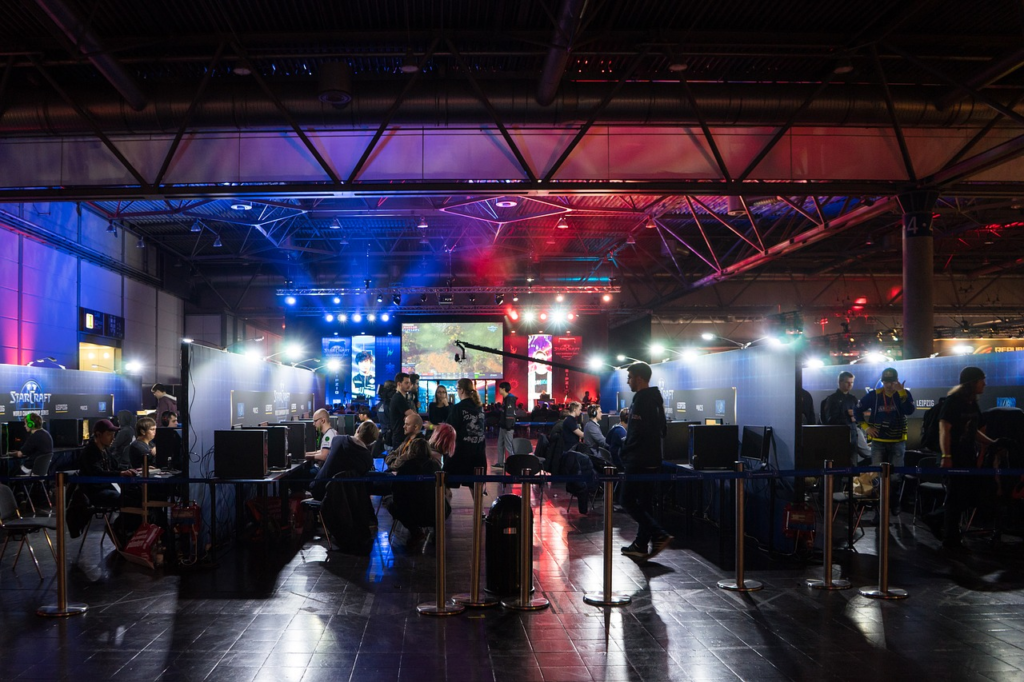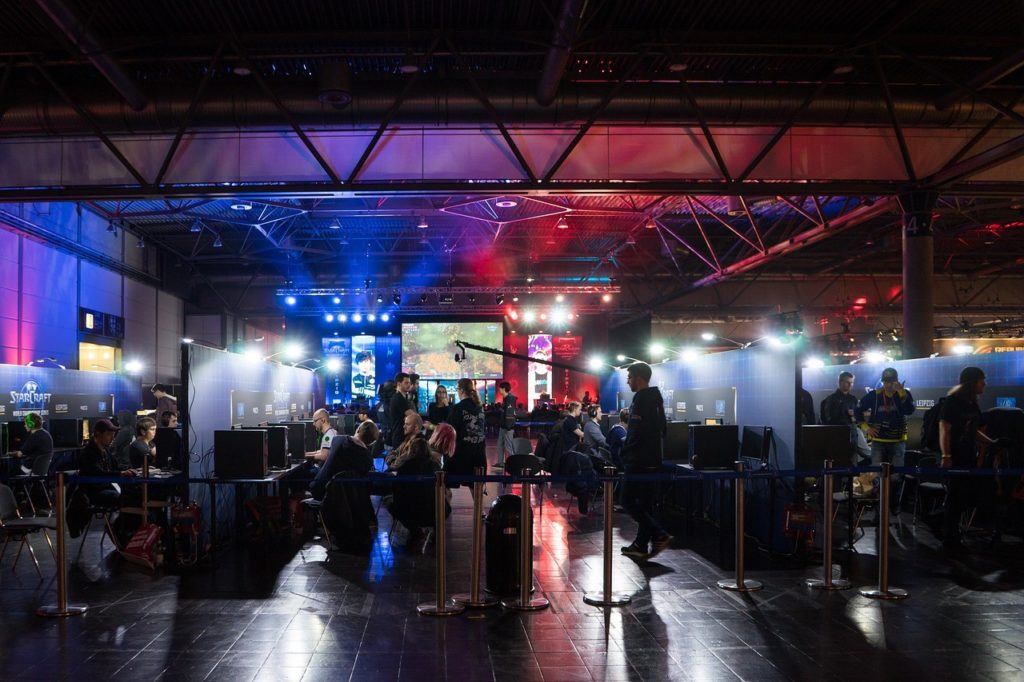Distractions, according to psychologists, may be beneficial at times. One method to excite the mind and activate the thinking process is to engage in a pastime. Gaming is one of these activities, in which individuals engage as participants, fans, or bettors. However, it is not all fun and games with eSports (electronic sports); video gaming at this level is competitive and professional, and may even be a full-time career.
eSports is growing in popularity and has become a worldwide phenomenon, with many countries attempting to participate. The worldwide eSports business is enormous, with a current market value of $1 billion and a predicted market value of $3 billion by 2025. Meanwhile, Newzoo, a games and eSports analytics company, forecasted a 9.3 percent growth in consumer sales by 2020, with the industry expected to exceed $200 billion by 2023.

Pixabay user dife88 created this image.
The eSports arena is a place where people may compete in electronic sports. In reality, as the year progresses, these numbers may have risen since more people have been forced to remain inside and most strenuous sports events have been cancelled owing to the epidemic. As a result, greater emphasis is being placed on eSports. Eight nations had increases in revenue, while four countries saw a rise in the number of players, according to the top ten highest-earning list for 2019.
In Africa, nations such as South Africa, Nigeria, and Kenya are increasingly seeing the effects of this growth. However, compared to other Asian and European nations, this is still a long way off. While there is still debate regarding the legality of eSports because of the blurred boundaries between conventional and virtual entities, a growing market like Africa will continue to attract international interest because to its large youthful population and high Internet penetration.
Attracting eSports revenue streams
Investors are drawn to booming sectors, particularly when the climate is favourable. South Africa, for example, has a reasonably robust eSports industry because to its population of young people who like gaming, and has drawn a lot of international investments as a result. Global companies are financing local events and sponsoring players for international contests, making the country home to Africa’s biggest eSports scene.
However, this is not exclusive to South Africa. These companies have already shown interest in Egypt, Nigeria, and Kenya, and their impact on the continent’s total eSports industry is significant. Sponsorships and advertising are the primary sources of income for the eSports business, with tournament winners also contributing. All of this, however, may be difficult to achieve if Africans are unable to compete in international competitions. However, it seems that Africa has a devoted eSports fanbase.
The status quo in Africa’s eSports industry Betting has grown an audience for the sport since Africa has yet to achieve global prominence in terms of revenues and the number of national players. In 2016, it was claimed that in Nigeria, more wagers were made on eSports than on traditional sports. There’s another explanation for this, apart from Africa’s robust gambling culture.
Fast internet rates are required for professional involvement in virtual sports, which are not commonly accessible in the area. High latency, or lag caused by poor network reception, is a certain way to sabotage a gaming session. When this is the case, real-time competition is almost impossible.
Unfortunately, 5G is not yet commercially accessible in Africa, and the GSMA predicts that 4G will take over the 3G and 2G spectrums in four years. This also makes me think about the exorbitant cost of data. This is why an African athlete must compete in eSports competitions outside of Africa. Despite the projected rise in smart device use in Africa, gadget availability and cost remain issues.
Even if the suggestions to address these issues are implemented, it may take decades for Africa to have an Internet environment that is stable enough to sustain eSports. Needless to say, improving infrastructure would help the African eSports sector expand faster. However, if people do not participate in activities other than betting, this development will be sluggish.

